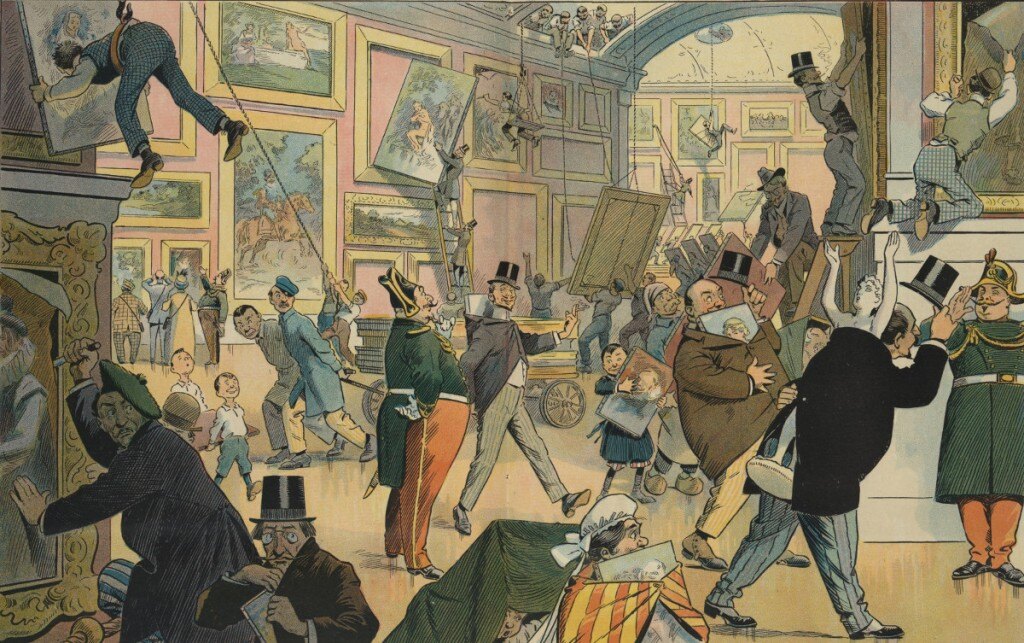
Riots Aren’t Violence
It has become standard media practice to refer to rioting as “violence.” But the word “violence” must be reserved for attacks on people rather than property.
In replying to calls to condemn the violence of the Baltimore rioting this past spring, the standard progressive argument was as follows: it is unfair and hypocritical to ask for the disaffected of Baltimore to remain peaceful, given that they have been violently besieged by the police for many years. In the war waged by the police upon the poor, why should only one side be held to a standard of pure restraint? As Ryan Cooper at The Week points out, violence emerges in a context, a context of long-term structural poverty and despair for which those who chide rioters bear some responsibility. In a related vein, Scott G. Brown at the Washington Post defended violence as an occasional necessity in the pursuit of civil rights gains.
All of this is correct, but it misses a crucial point: when people get hurt or killed, that’s violence, but riots and looting in themselves simply aren’t violence to begin with. Violence is not committed against property, it is committed against people. The ethics of property destruction can certainly be debated, but to label it violence is to expand the use of the term in a way that dangerously blurs the distinction between the moral value of people and that of objects. Right and left alike are discussing whether violent protest is acceptable, without noticing that most of the acts under discussion aren’t actually violent. Setting fire to a police car may be shocking, but so long as the car is the only one harmed, we have chaos but not violence.
It’s important to maintain a clear concept of what violence is and isn’t, because true violence is such a deeply terrible human experience. Actual violence leaves people with brain damage, nightmares, disability, and trauma. The destruction of human bodies is a moral horror that simply cannot exist in the same category as the breaking of glass. Using the word “violence” to describe the smashing of a window (which is, it should not need saying, incapable of feeling pain) diminishes the term. Seeing harm to inanimate objects as violent also creates all kinds of definitional contradictions. What kind of harm to an object comprises violence? Is it a violent act to recreationally shoot a glass bottle with a BB gun? To take apart an air conditioner?
It is no surprise that the right wants to equate property and personhood. The wealthy, who live comfortable lives largely free of violence, enjoy pitying themselves by pretending that filing one’s taxes is like being tied up and held hostage. This conflation is what causes wealthy investors like Tom Perkins and Steven Schwarzman to start comparing Obama to Hitler every time he proposes a tiny hike in the marginal tax rate. If financial harm is the same as physical harm, then collecting a tax is the vicious slaughter of defenseless dollars. By making these sorts of arguments, conservatives trivialize the pain of every single victim of violence in recorded human history. Nothing that occurs to a business owner on a spreadsheet can ever approach the seriousness of even a minor bodily wound.
Expansive uses of the term violence are not the exclusive provenance of the right, however. On the left, many hold the idea that some uses of language are in themselves violent. A slippage occurs by which violence comes to apply not just to physical harm to human bodies, but to anything that can be analogized with such harm. Social theorist Judith Butler says the excluded “suffer the violence of derealization,” by which she means being disregarded, not being injured. Tabias Wilson at Gawker classifies as violence “the forced circumcision of blackness from queerness, and queerness from masculinities,” and says that discriminatory hiring practices constitute violence. This left-wing habit, of slipping from describing something as being like violence to describing it as actually being violence, trivializes violence just as much as the corresponding right-wing libertarian habit.
So words are not violence, and neither is looting. Violence is violence, actual physical harm to human beings. Yes, it’s important to point out the justifications for violence in self-defense of a community. But it’s even more important to point out the basic flawed premise: that police beatings and arrests, which are done to actual humans, exist in the same league as the stealing of televisions and bags of chips.




